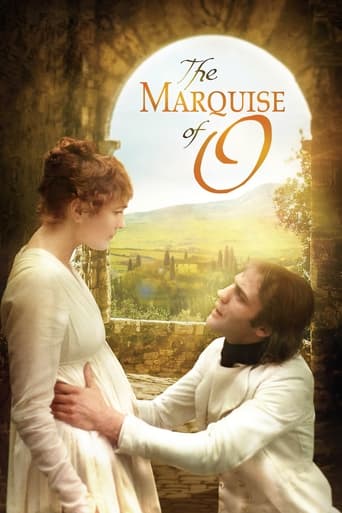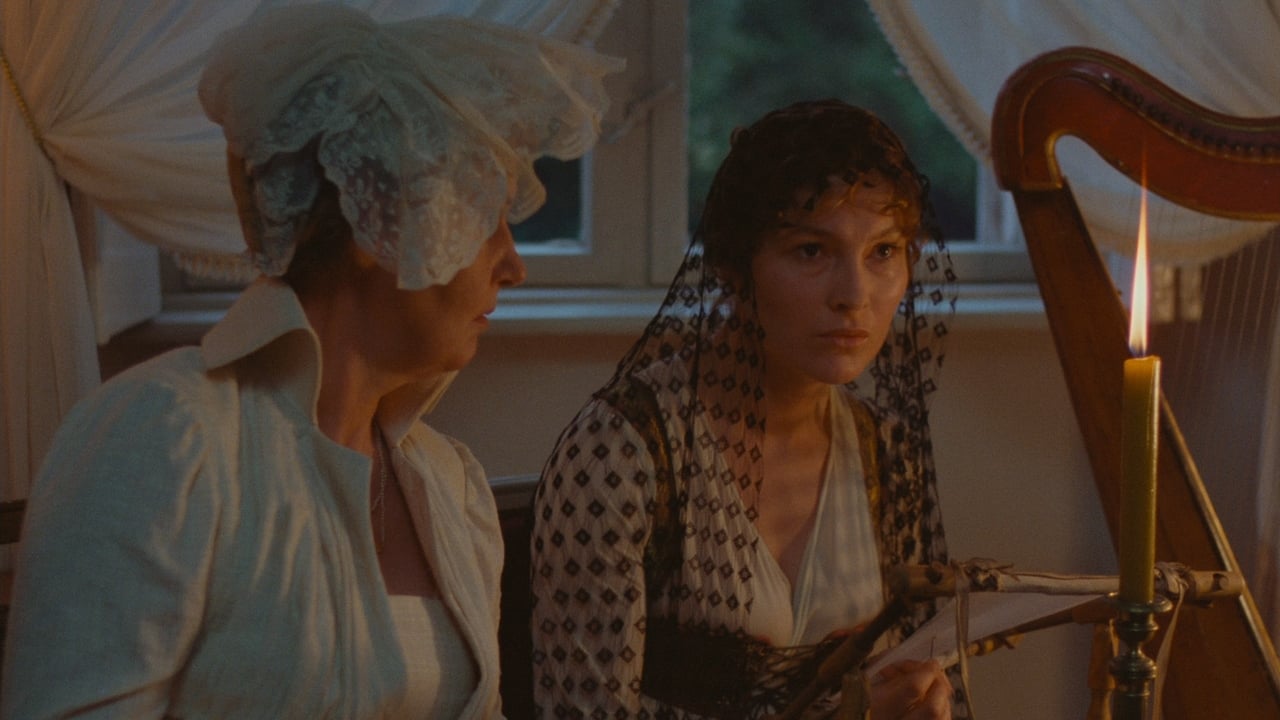Horst in Translation (filmreviews@web.de)
"Die Marquise von O..." or "The Marquise of O" is a co-production between West Germany and France from 1976, so this one has its 40th anniversary this year. The cast is almost exclusively German, but the writer and director is Éric Rohmer which explains the French involvement. Rohmer was in his 50s at that point and already an Oscar nominee. His 100-minute movie here was based on a Heinrich von Kleist story and is certainly among the writer's most known adaptations in film. I will not mention all the actors in here in detail as you can see them in the cast list, but it can be said that lead actress Edith Clever who plays the title character for a German Film Award for her performance here and so did her male co-lead Bruno Ganz for whom it was the big breakthrough as an actor and he worked with Herzog, Wenders and many other prestigious filmmakers in the years to come. This movie here received lots of awards attention, probably also because German period pieces are really nothing you get to see that frequently.Most of this praise and awards recognition (also like the BAFTA win) had to do with the technical side of the film and also the visual side and I would agree that costumes, sets and cinematography are those areas where the film works the best. Or I could also say "only areas where it works" as I personally was not impressed at all by the viewing. Clever was not really memorable as the main character and being a big Ganz fan, I was disappointed by how he went over-the-top with his performance on some occasion. The costumes gave him enough showiness already and I hoped for more quiet subtlety. Also I felt that Rohmer's story here just wasn't enough for 100 minutes and that he stretched the few crucial plot points )pregnancy, relationship between the two protagonists) until they became really uninteresting to watch from the perspective of the audience. I am very much baffled by this film's success. I cannot deny it. I have not seen (enough) other stuff by Rohmer, which is why I am still undecided if the maker is the problem here or just the subject. But I do know for sure that I cannot recommend the watch here. Thumbs down from me and admittedly I will say that period pieces have never been my favorite genre of film, but still there are more than just a few that I consider superior to this one. Watch something else instead.
jcnsoflorida
Erich Rohmer's adaptation of a novella by Heinrich von Kleist is visually remarkable. If you can imagine a painting by Jacques Louis David come to life, that is what this film looks like. Clearly a lot of attention was paid to colors and lighting. Aficionados of neoclassicism should not miss it. I believe this was Bruno Ganz's first film and the other players, particularly Edith Clever, are fine as well. The tone is one of social satire tempered by comedy. A number of Netflix viewers have complained that the film requires a lot of patience. I don't agree. It requires an interest in the period, perhaps. Recommended for the discerning.
tedg
Spoilers herein.Greens and ochres. Germans and Russians. The expected disguised as mystery. I am beginning to appreciate the profound power that films have to define life today. I became interested in this film for two reasons. (It is my initial Rohmer.) The first is that it is about the influence of image on society using modern film but set in a time before film images had any power. So the images are from painting. Rohmer is a film intellectual, perhaps so aggressively so the term has no meaning. At any rate, I knew what he intended this film to be about: ideals, film and consequences.The second reason this got bumped up on my list is because I admire Greenaway's ideas on vision and soul. And HIS list of the ten best films includes this one! I can definitely see why superficially. This is a very paintery experience: extremely composed. Every action has physical grace which defines the story: one can easily watch it with no sound.The story is in the manner of a German Austen adapted for the stage -- it is a little too `Bulwer-Lytton'-ish for my taste, and Greenaway's too to judge by `Draughtsman's Contract.' The camera is in the manner recently seen in `Mood for Love.' Languid.
Shezan .
If the romantic poet and playwright Heinrich von Kleist (who wrote almost at the same time as Goethe) could have imagined the cinema, he would have approved of Rohmer's filming of his novella. What we see here are not 20th century characters in costume, but early 19th century Romantic sensibilities reacting according to their way of looking at the world. It is as strange as time travel, and utterly charming. Rohmer frames them in sets like Caspar Friedrich or Fuseli paintings. This movie is a marvel.


 AD
AD

